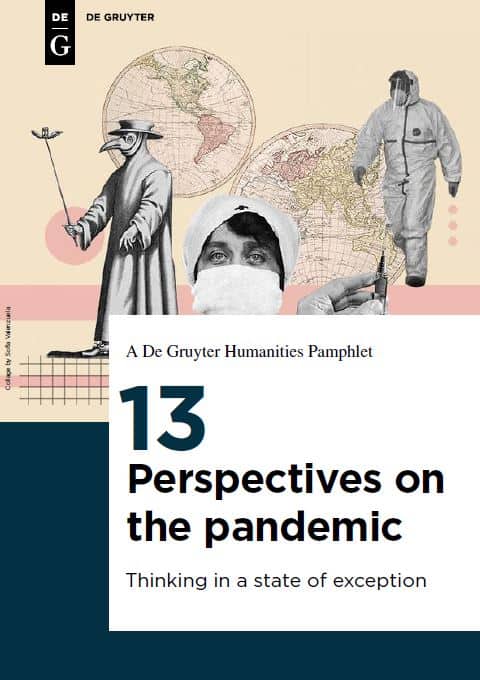Long-Term Impacts of the 1918–19 Influenza
During the coronavirus crisis, the influenza disease, the biggest killing infectious disease in modern history, is often mentioned as the nearest comparator. Can the stories of its survivors inform surviving Covid-19?
This essay was first published in the free digital pamphlet 13 Perspectives on
the Pandemic: Thinking in a state of exception.
Public interest in the 1918–19 influenza pandemic has tended to focus on the mortality statistics, their first gaze entranced by the estimated 50 million dead and the speed with which the disease spread around the globe. Various factors, included the death statistics, have acted as fences in a fog, obscuring from view a bigger statistical story of the influenza: the exceptional levels of morbidity and whether or how the disease impacted long-term on those who survived, whether they suffered the disease or not.
In 2006, I began researching the impact of the 1918–19 influenza pandemic on Ireland’s population for my doctoral dissertation. Studying an entire pandemic from a historical perspective, even if limited to one country, is a little daunting. Where to begin? Naturally, I focussed first on the Irish statistics, but then my academic supervisor in Trinity College, Dublin, Professor David Dickson, suggested there remained a small but closing window to collect living memory from people in their nineties or older.
He even lined up my first interviewee: our university’s Junior Dean, Professor RB McDowell, renowned for his scholarship as a historian… and his eccentricity, which had an outward manifestation in his keeping wrapped up in warm clothing — tweed jacket and wool scarf — even on a hot summer day. I interviewed the then 95 year old RB on campus. His answers were considered, describing the medicines used, the general practitioner telling his worried parents that their five-year-old son might not last the night, and how he had heard the local hospitals were crammed. He survived, but the family nanny died.
Asking the Right Questions
There is more than one lesson for the study of pandemics in that first of what became over fifty interviews with people who had lived through the pandemic as children. We need, with any historical research, to ask the right questions of our sources; otherwise we get a less complete answer. I went armed with questions about the immediate crisis — about the symptoms, medical care, even about the worry of his parents, but not about whether this was something that had shaped his career, and even his lifelong attitude to his health. It was when he told me that the damage from a disease he had experienced as a five-year-old boy had an effect on his choice of career that I became hooked. This was not just about the immediate, but also the longer term impact on people’s lives. How will this disease impact on survivors’ lives? For many, the ongoing health impacts and emotional trauma will be severe.
“Pandemics are great teachers. We have to make sure we know how to ask the right questions, and listen attentively.”
For the curious, RB, from an upper middle class Belfast family, chose academia as a career at the bar or in the army was considered too tough for the long-term invalid. As I introduced myself, asking politely “How do you do?”, RB responded: “They tell me I am doing very well, for a man of my age. My blood pressure is…” Clearly his early close call with death had framed his long-term lack of confidence in having health, although he lived to 97.
Experiences Remain
The broader lesson from these interviews with child survivors of the 1918–19 influenza pandemic for this current crisis is that this too is not just about the now: this experience will remain with all of us — but particularly with the bereaved and Covid-19 survivors — for the rest of our lives.
Pandemics are great teachers. We have to make sure we know how to ask the right questions, and listen attentively. These interviews show we need also to try to understand it through the eyes of our children, rather than hoping it passes over them. It will not. They too will be curious listeners, picking up on our fears.
Learn more in this related title from De Gruyter
[Title image via Wikimedia Commons/Public Domain]
